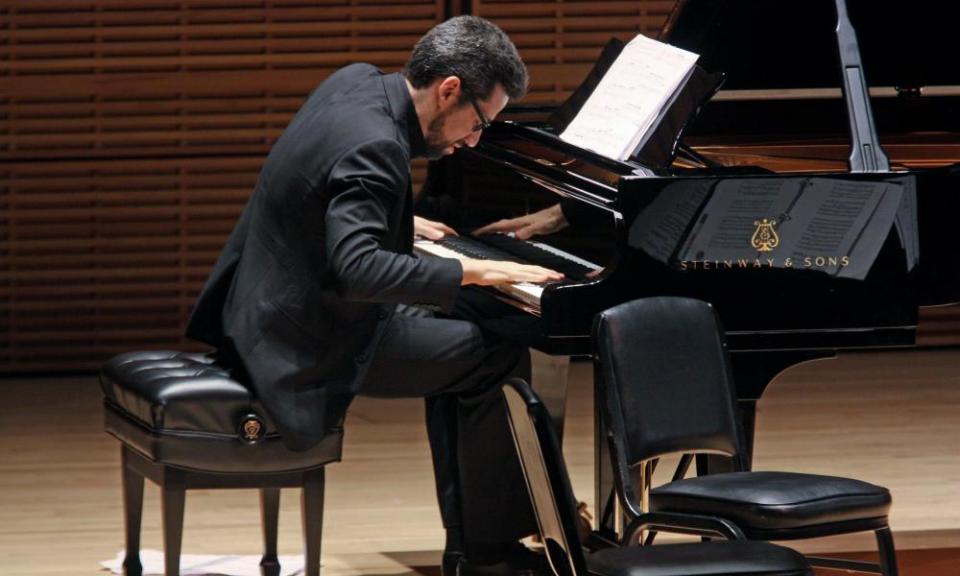Biss/Padmore review – elegance and intensity in compelling Schubert

Expressionism in music, you could argue, begins with the works that Schubert composed in the last year of his life, with their groundbreaking explorations of beauty, fear, grace and extreme emotion. For the final concert of his Late Style series, examining works written in the face of mortality, pianist Jonathan Biss juxtaposed the A Major Sonata D959 with Schwanengesang, for which he was joined by tenor Mark Padmore.
The elegance and intensity of Biss’s playing make him a compelling Schubert interpreter. He pitched the sonata in territory between dream and nightmare, as the uncertainties and ambiguities of the first movement gave way to the andantino, where he brought a real sense of rage to the cadenza, shattering the sadness of the opening melody. The finale was superbly shaped, its gathering nostalgia profoundly touching.
Schwanengesang is frequently described as a posthumously assembled collection of Schubert’s last songs – never originally intended to be performed as a set. Padmore, addressing the audience, begged to differ, arguing that they form a unified meditation on a dominant theme of yearning. Pushing himself to his vocal limits, he certainly made the case for a structured emotional trajectory passing from rapture through bitterness to near madness. Biss’s treatment of the shivering, unresolved harmonies of Die Stadt reminded us just how much this music pre-empts 20th-century modernism. The emotional release from the horror of Der Doppelgänger into the hope of Die Taubenpost was poignant in the extreme.

 Yahoo News
Yahoo News 